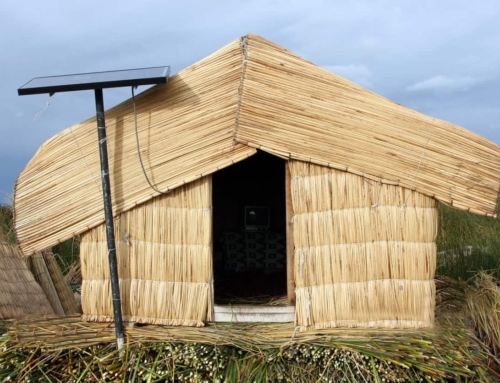We know that the way we use language in the public debate often influences which policies or candidates gets supported. Often, the most effective language activates deep-seated circuits or frames in our brains that are about right and wrong. For example, “My country, love it or leave it.” This is a patriotic frame. We love our country. Love is a powerful, if overused frame.
Besides being a false choice, the phrase contains another frame “My.” If something is yours, then you possess it. And we know that possession is 9/10ths of the law. We think, you’ve claimed it, so it must be yours and we defer.
This got me thinking about how we use framing and language in the climate movement, and how we can increase our possessive language and the order of our words. Here’s a simple example.
When describing pollution, we can say, “Coal pollutes the air.” This is true and direct as far as it goes. Or we can say, “Coal pollutes my air.” Or better, “Coal pollutes our air,” if we want to include others. The difference in these statements is subtle but significant. In the first phrase, coal (the subject) is polluting the air (the object). Note that it is just the air that is being polluted. In the second statements, it is my air (or our air) that is being polluted. Going further, we can say, “Coal pollutes our air. Air that we breath. This means you are being polluted by coal. It’s your air. It’s your breath that is being taken away.
Now think back to either raising kids or your own upbringing. Before you learned about sharing, remember the screaming, “It’s mine! Give it back!” We are a bundle of needs, we learned that crying helped get those needs satisfied. That we came first. That when something was being withheld or there was something we needed then we cried, fought for, and yelled for it. We demanded it. And it felt good. Nothing could dissuade us. We wanted it. It was ours. When do we want it? Now!
“Me, Myself, and I,” is a humorous deflection of the truth of childish self-centered behavior. But we can learn from it by putting our needs and the needs of our families and communities first. We can use the first person and the possessive.
Sidebar. I should note that the typically, the subject is more important and powerful than the object. Who or what is performing the action? In the first phrase above, it is coal. We can change the word order above and say, My air is polluted by coal. It’s passive and coal is still acting on the air, but my air comes first and is more important.
Word order also makes a difference when two subjects are mentioned, the first word being more important. So we tend to say “right and wrong,” because right is more important than wrong. We play cops and robbers, not robbers and cops, and cowboys and Indians, not Indians and cowboys (apologies to indigenous Americans). These are cultural prejudices, but they get hardwired. Yet, I still see this word order in lots of climate communications. How about. “Jobs and the environment?” Which is more important? Or, “Fossil fuels and clean energy?”
I wrote a post recently about, “Big Oil’s Bad Day.” Big Oil is the subject and comes first. Assuming we were all on the side receiving that benefit, why didn’t the headline read, “Humans score victory against Big Oil for our survival”? It’s the logical equivalent, but we think of Big Oil first because it is placed first as the subject. So the headline slips by our filters and we feel sorry for Big Oil. They’ve been victimized somehow.
You may think that all this subtlety of language is too much nuance. But our “fight” against “Big Oil” will be won with words before it is won in the field. According to Emily Atkin of Heated, “Out of 27 news articles that covered the May 26 climate wins (Big Oil’s Bad Day), 24 centered the oil industry’s plight over the planet’s progress. In other words, one of the best days in recent memory for humanity’s future was overwhelming painted by the news media as a loss. It was the best possible framing Big Oil could have asked for.”
So back to me, myself and I, with another slight diversion. One of the thing that amazes me about the 45th president is his constant use of the first person. This is intentional. It’s a frame. “I am a stable genius. I know finance. I could go onto 5th avenue and shoot someone…” It doesn’t matter if any of this is true, because some circuit in our brains tunes out after we hear the word I. Our brains defer to the word and the demands especially when said with outrage. My election was stolen. I am the victim. What we process is the whiny demanding kid who is crying and needs to be picked up. And the part we don’t like to admit, is that some part of us wants to comfort the whiny kid.
It’s particularly dangerous to do this. Especially for a third of the population that doesn’t even think, they just fall in line. Because the best way to shut up a whiny little kid is to ignore the child. Want your kid to sleep through the night? Ignore their crying. In a couple of days, they will be sleeping through the night.
So here’s what I’m saying. We can be more self-centered and use the possessive. Like the whiny kid. You might think this makes us no different than the big whiny kid. But we are on the right moral side of the climate crisis. While the other side may believe they are, there is no moral equivalency. So it means turning up the volume.
We have wiring that responds to outrage, whether that outrage is deserved or not. That’s why we have so many outraged talking heads. Outrage captures credibility. It’s another sign of the possessive and putting oneself first. Does this mean we just match whininess until the din drowns everything out. No. But f**k man, it was 124°F in Mexico City today and Houston just got wiped out again by another storm! Carbon pollution reached another record. What will we eat when the crops die? Yep. This is self-centered.
We can’t use doom alone in our communications. We have solutions too. So our outrage and putting ourselves first needs to be balanced with our vision of a safe secure climate and giving agency for people to demand action.
Let’s be more possessive in the use of our own language in our climate communications? My kids future. My air! This is our home! You don’t get to decide the fate of my children. I am outraged. I can’t believe they want to drill in our national parks.
Almost every climate communication can be made better. We can ramp it up. Put our needs first. The use of the first person gives agency. Possessive gives ownership. Plural includes others. The use of language is a subtle point, but I’m betting you’ll like by my idea.
Thanks for all you do.
We are all connected. Savor the Earth!’™
Hobie,
L. Hobart Stocking
SkyWaterEarth.com
hobart@skywaterearth.com
651-357-0110
Facebook: @SkyWaterEarthConnected
Twitter: @SkyWaterEarth








Leave A Comment